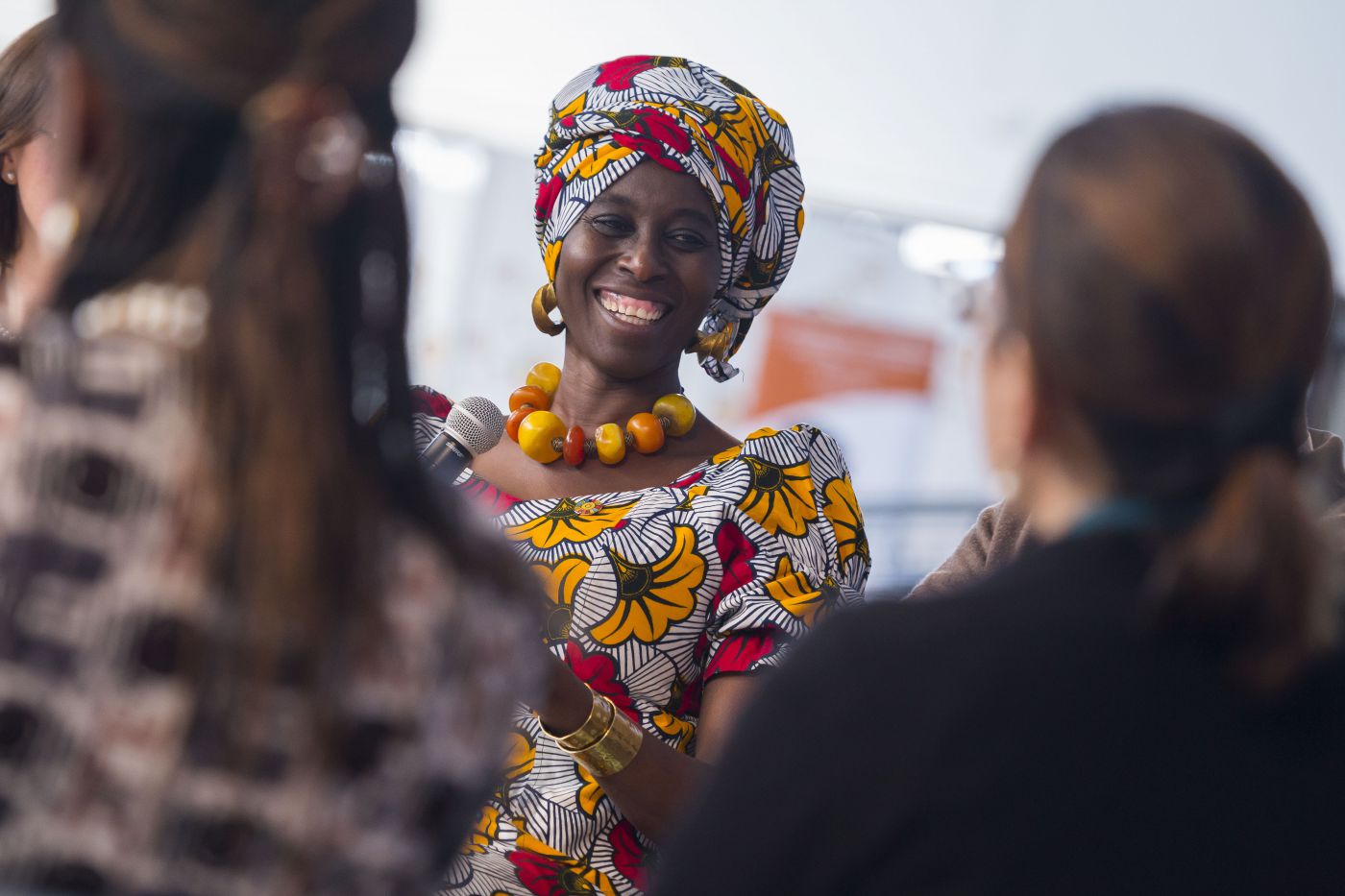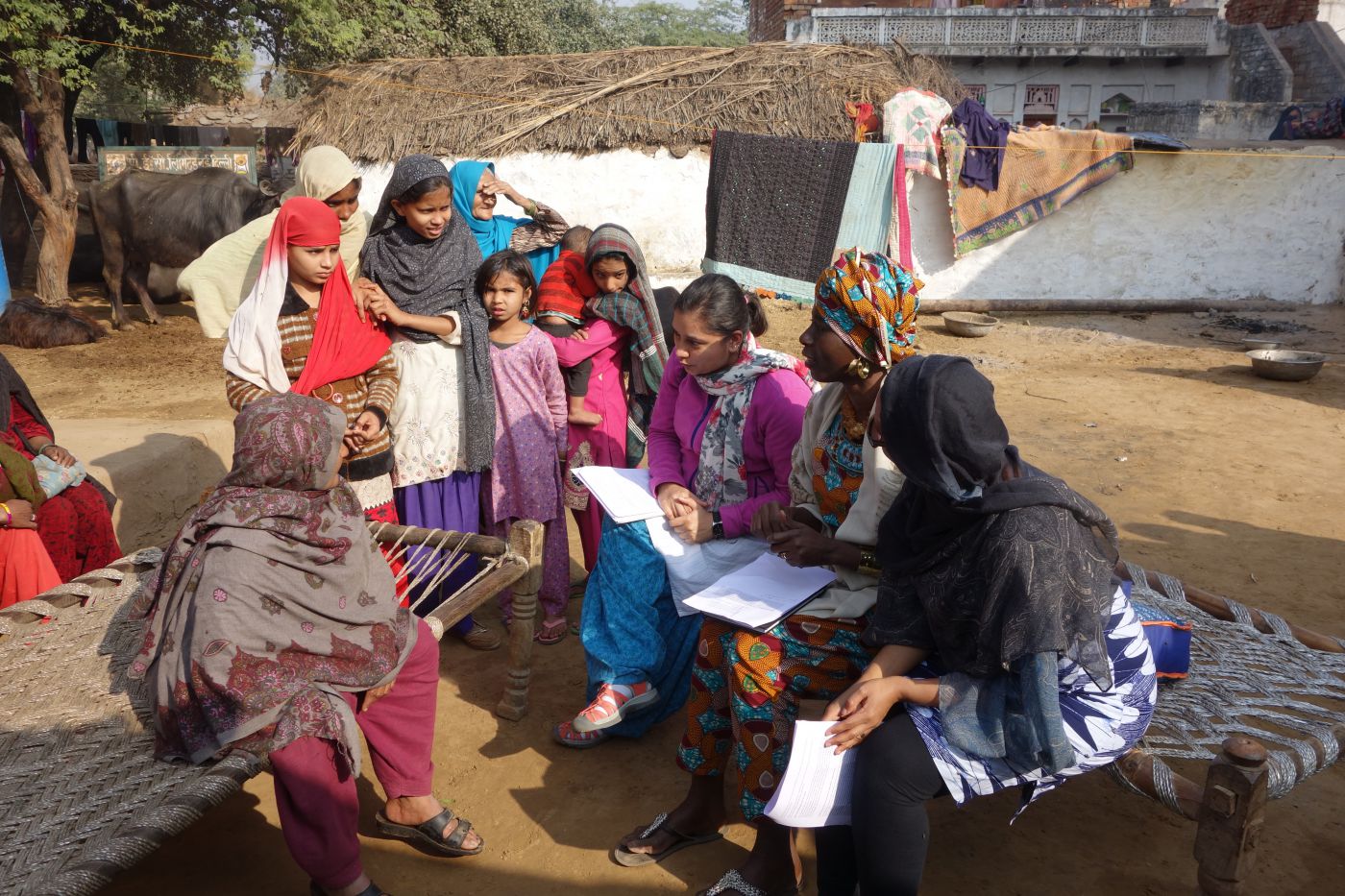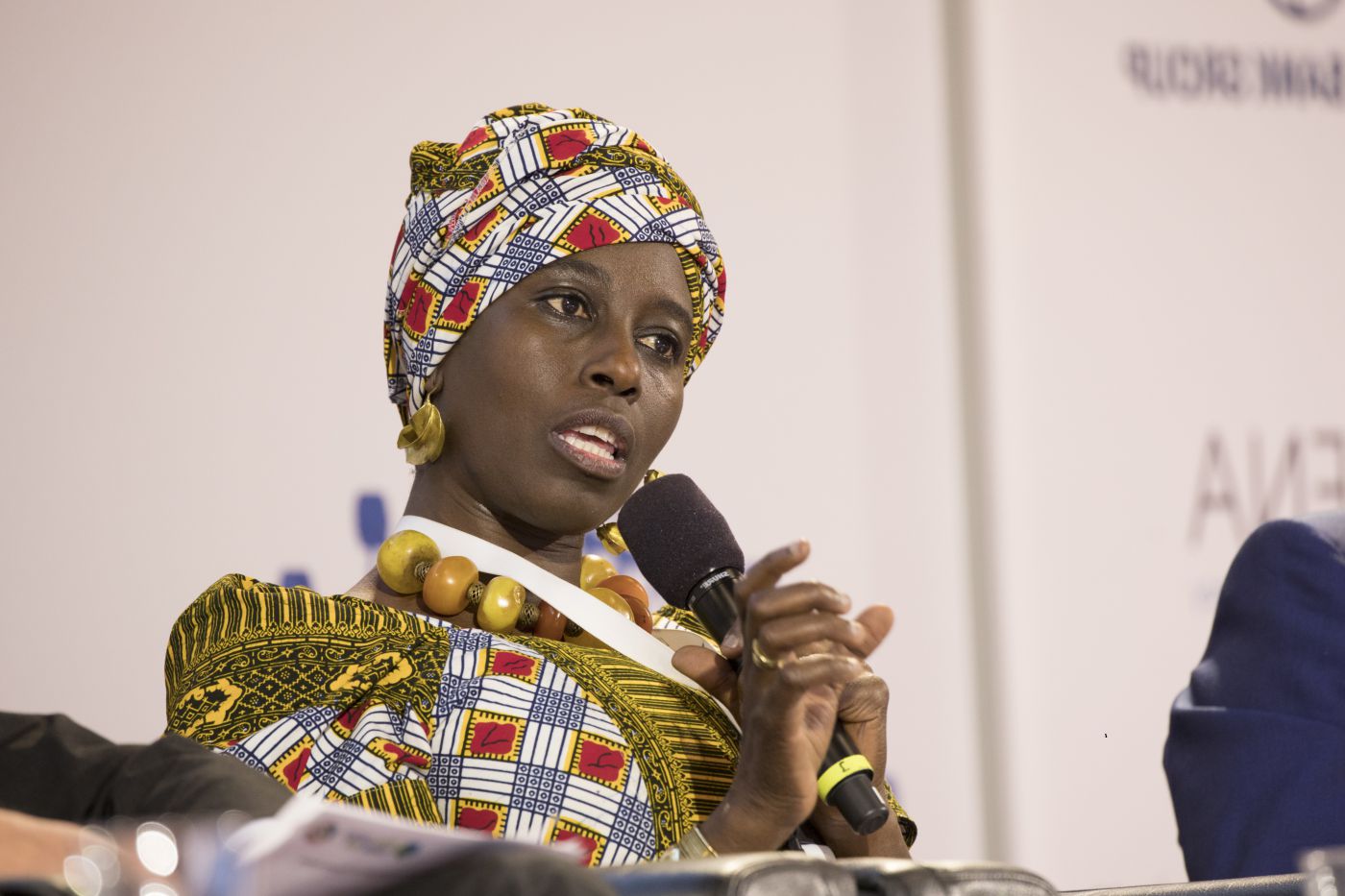As the international coordinator and programme manager, Sheila Oparaocha is directly responsible for ENERGIA’s activities across the world. When she is not strategising, participating in conference calls and meetings at her office in the Netherlands, she is likely speaking at a high level forum, helping steer other organisations and efforts related to gender and energy, or otherwise raising awareness of the importance of bringing women to every energy-related conversation, policy and investment—be it in Africa, Asia or anywhere else in the world.
In this interview Q&A, Sheila talks about ENERGIA’s work, including general achievements, policy influencing, the challenges for mainstreaming gender in energy policies and investments, and more.
__________________________________
You have been involved with the ENERGIA network for 18 years now. What would you say have been the main developments during this time, both for the organisation itself and in terms of the mission it pursues?
In terms of mission and vision, I can say that we first set out to make gender a legitimate issue in the energy sector in developing countries; and second, we wanted to ensure that gender is treated as part of the normal planning priorities and results for the sector. To do this we based our approach on a strategy of gender mainstreaming. We worked with key energy organisations and tried to match gender goals with their energy objectives.
If we look at the achievements—when we started, there was no recognition of the link between gender equality and energy access. We have played a big role in setting this on the international development agenda. Today you encounter gender in speeches and policies everywhere, which is quite an achievement. A review done by the IUCN and ENERGIA showed that in 73% of energy policy frameworks in Africa and in 46% of energy policy frameworks in Asia-Pacific examined, gender was incorporated. This picture is very different from Europe and Latin America where we did not concentrate our efforts.

What we have also tried to do, especially since 2014, is communicate the evidence that this actually works: That women can be a central driver for scaling energy access, and that bringing gender and energy together changes women’s lives. But it does even more than that; it also has an impact on whole families, communities and local economies. Through financial and technical support provided to our partners, 4,000 women entrepreneurs have delivered sustainable energy services to over 2 million last-mile consumers and by so doing have improved their family livelihoods and contributed to the growth of their local economies.
Another thing I see is that there are many more actors in this space now than when ENERGIA was founded in 1996. This shows that others recognise the credibility of our key messages, and are willing to invest in this area. One example is the European Commission, which is now investing 20 million euros in a ‘Women and Sustainable Energy’ programme. An important fact is that not only are there many new actors in this space, but there is great variety among these actors—they are NGOs, impact investors, social enterprises, banks and multilateral organisations.
ENERGIA is strongly involved in shaping energy policies at different levels. What are some examples of this involvement?
To begin with, at the subnational level, we have raised awareness of the fact that one has to work with local governments to have a real impact. They are closer to the communities we focus on, devolution is happening, and local authorities receive budgets and resources so they can invest in their communities. In Kenya for example, our partner, Practical Action Eastern Africa, has been working with a number of county governments, first on building awareness of the relevance of gender and then working to integrate gender in energy intervention. Efforts in Kenya have already progressed to shaping country-level energy plans and budgets.
Turning to the national level, one of the main examples of our influence are the Sustainable Energy for All (SEforALL) country action plans. If you look at Senegal, Kenya, Nepal, Tanzania—countries we focused on—you find that these plans very strongly include gender. The Ministry of Energy and the Development of Renewable Energy Sources in Senegal have asked our partners, Energy 4 Impact and Enda Tier Monde, to also support them in translating the gender commitment in the SEforALL country action plan into a concrete gender action plan and to build capacities. So, we are not only involved in policy making but also in developing the means of implementation.
At the regional level, ECOWAS, the Economic Community of West African States, is a clear example of success. We started our journey with the ECOWAS Centre for Renewable Energy and Energy Efficiency (ECREE) in 2011 with capacity building. Continued involvement eventually culminated in groundbreaking regional policy. We contributed to identifying key entry points and putting gender in the energy sector at the top of the agenda. The policy is now translated into regulation and serves as a best practice for other regions. This is something we are extremely proud of.
Going to the global level, ENERGIA was involved in shaping Sustainable Development Goals (SDGs) 3, 5 and 7 on health, gender equality and energy access, which will directly influence the global development agenda for the next 30 years. Through lobby and advocacy, working together with the Global Alliance for Clean Cookstoves and other civil society organisations, we managed to get cooking energy and indoor air pollution included as part of the SDG indicators. This is essential for women, and for ENERGIA and GACC who were instrumental in this outcome.
Our strong involvement in the SEforALL Partnership is also relevant to mention. One of the things we proposed as a member of the SEforALL Advisory Group, is a platform to coordinate the efforts of key actors working on gender, energy and social inclusion. The ‘SEforALL People-Centred Accelerator to Advance Gender Equality, Social Inclusion and Women’s Empowerment in the Sustainable Energy Sector’ is response to this proposal. We strongly support the Accelerator in order to pool together and leverage financial, intellectual and other resources, because we do not want to work in silos, but rather use economies of scale to deliver impact at scale. We are convinced that we need to complement each other to achieve real progress. That’s what this accelerator is all about, and it’s another thing we are proud to contribute to.

What do you see as the main challenges for gender mainstreaming in energy policies and investments at this point in time?
A major aggravating factor at this point in time is the changing political landscape, with an increasing number of conservative governments and protectionist policies in Europe and North America. It is short-sighted not to see that we are all connected when it comes to many things, especially international development cooperation. What politicians in the global North and South need to understand is that what happens in Africa, for example, has an impact in Europe. Increasing incomes of hundreds of thousands of women in Senegal is going to have a ripple effect on local economies, national GDPs and international relations, including migration. I see less and less recognition of this fact, and this is concerning.
What are the plans for ENERGIA in the next few years and beyond?
We would like to scale up what we are doing. Our Women’s Economic Empowerment Programme is definitely something we are going to scale up. We are excited that the SEforALL accelerator that I mentioned earlier is bringing together different actors, and we will look for ways to join our efforts and resources with others involved.
We feel that there is still a lot to do to build evidence of the impact that mainstreaming gender in energy policies and investments has. We have started working on this and wish to expand those efforts, to inform policies, designs, investments and make it possible for different actors to make the right choices.
And finally, while we have been mostly focused on energy space until now, we also see that climate change is becoming ever more important, particularly as Nationally Determined Contributions (NDCs) are guiding policy making and planning at the national level. It is certainly one of the new areas we are going to work on and grow into.











Follow us on: